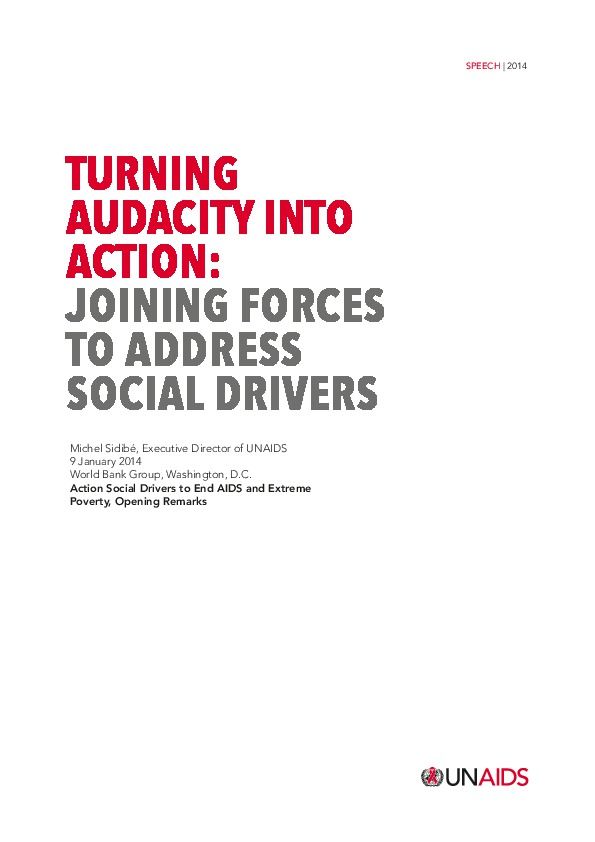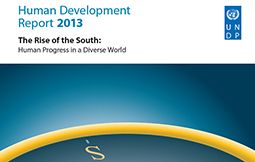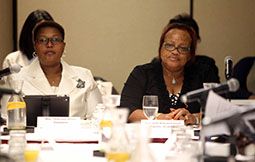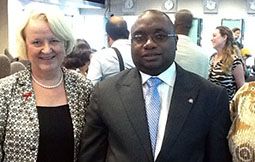
Press Release
Launch of the Global Commission on HIV and the Law: “Addressing punitive laws and human rights violations blocking effective AIDS responses”
24 June 2010 24 June 2010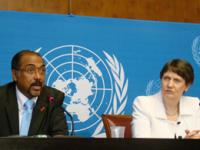
Michel Sidibé, UNAIDS Executive Director and Helen Clark, UNDP Administrator launch HIV and the Law commission.
Credit: UNAIDS
Geneva, 24 June 2010 – The United Nations Development Programme (UNDP), with the support of the UNAIDS Secretariat, launched the Global Commission on HIV and the Law today. The Commission’s aim is to increase understanding of the impact of the legal environment on national HIV responses. Its aim is to focus on how laws and law enforcement can support, rather than block, effective HIV responses.
Some 106 countries still report having laws and policies present significant obstacles to effective HIV responses.
Helen Clark, UNDP Administrator
The Global Commission on HIV and the Law brings together world-renowned public leaders from many walks of life and regions. Experts on law, public health, human rights, and HIV will support the Commissions’ work. Commissioners will gather and share evidence about the extent of the impact of law and law enforcement on the lives of people living with HIV and those most vulnerable to HIV. They will make recommendations on how the law can better support universal access to HIV prevention, treatment, care and support. Regional hearings, a key innovation, will provide a space in which those most directly affected by HIV-related laws can share their experiences with policy makers. This direct interaction is critical. It has long been recognized that the law is a critical part of any HIV response, whether it be formal or traditional law, law enforcement or access to justice. All of these can help determine whether people living with or affected by HIV can access services, protect themselves from HIV, and live fulfilling lives grounded in human dignity.
We must stand shoulder to shoulder with people who are living with HIV and who are most at risk. By transforming negative legal environments, we can help tomorrow’s leaders achieve an AIDS-free generation.
Michel Sidibé, UNAIDS’ Executive Director
Nearly 30 years into the epidemic, however, there are many countries in which negative legal environments undermine HIV responses and punish, rather than protect, people in need. Where the law does not advance justice, it stalls progress. Laws that inappropriately criminalize HIV transmission or exposure can discourage people from getting tested for HIV or revealing their HIV positive status. Laws which criminalize men who have sex with men, transgender people, drug-users, and/or sex workers can make it difficult to provide essential HIV prevention or treatment services to people at high risk of HIV infection. In some countries, laws and law enforcement fail to protect women from rape inside and outside marriage – thus increasing women’s vulnerability to HIV.
At the same time, there are also many examples where the law has had a positive impact on the lives of people living with or vulnerable to HIV. The law has protected the right to treatment, the right to be free from HIV-related discrimination in the workplace, in schools and in military services; and has protected the rights of prisoners to have access to HIV prevention services. Where the law has guaranteed women equal inheritance and property rights, it has reduced the impact of HIV on women, children, families and communities.
With more than four million people on life-saving treatment and a seventeen per cent decrease in new infections between 2001 and 2008, there is hope that the HIV epidemic is at a turning point. To reach country’s own universal access targets and the Millennium Development Goals (MDGs), persistent barriers like punitive laws and human rights violations will need to be overcome.
UNDP Administrator Helen Clark believes that the next generation of HIV responses must focus on improving legal, regulatory, and social environments to advance human rights and gender equality goals. “Some 106 countries still report having laws and policies present significant obstacles to effective HIV responses. We need environments which protect and promote the human rights of those who are most vulnerable to HIV infection and to the impact of HIV, and of those living with HIV/AIDS,” Helen Clark said.
Michel Sidibé, UNAIDS Executive Director has made removing punitive laws a priority area for UNAIDS. “The time has come for the HIV response to respond to the voice of the voiceless,” he said. “We must stand shoulder to shoulder with people who are living with HIV and who are most at risk. By transforming negative legal environments, we can help tomorrow’s leaders achieve an AIDS-free generation.”
The Global Commission on HIV and the Law is being supported by a broad range of partners and stakeholders, including donors such as the Ford Foundation and AusAID. Murray Proctor, Australia’s Ambassador on HIV, expressed strong support for the Commission and the work it is tasked to do. “We commend UNDP and the UNAIDS programme for courageously taking this work forward, and we welcome the opportunity to contribute and support.”
The Commission’s work will take place over an 18 month period –mobilizing communities across the globe and promoting public dialogue on how to make the law work for an effective response to HIV. The findings and recommendations of the Commission will be announced in December 2011.
Right Hand Content
Press centre:
Download printable version (pdf, 32 Kb.)
Contact:
Adam Rogers | Geneva
Senior Strategic Communications Advisor
tel. +41 22 917 85 41
adam.rogers@undp.org
Natalie Amar| New York
Commission Secretariat
tel. +41 22 917 85 41
natalie.amar@undp.org
Saya Oka | UNAIDS | Geneva
Communications Officer
tel. +41 22 791 1697
okas@unaids.org

Press Release
AIDS responses failing men who have sex with men and transgender populations
15 May 2009 15 May 2009UNAIDS and UNDP launch plan to increase access to HIV information and services
GENEVA, 15 May 2009 – Ahead of the International Day Against Homophobia (17 May), the Joint United Nations Programme on HIV/AIDS (UNAIDS) and the United Nations Development Programme (UNDP) are launching a plan to encourage new and better approaches to HIV, specifically focusing on men who have sex with men and on transgender populations.
In many parts of the world HIV prevalence among men who have sex with men is more than 20 times higher than in the general population. Studies show that HIV prevention services reach only one tenth to one third of people who engage in male homosexual activity. In addition, a growing body of evidence shows that the majority of new infections in many urban areas are among men who have sex with men.
Yet, these same groups have limited access to HIV-related information and health services due to discrimination, violence, marginalization and other human rights violations. In many countries, they still face criminal sanctions and lack access to justice.
“Countries must be rigorous in monitoring the evolution of their epidemics and recalibrate their HIV programming to respond to the needs of those most at risk. In many settings this will be men who have sex with men,” said Paul De Lay, Deputy Executive Director ad interim, Programme, UNAIDS. “Responses must be based on local epidemiological and social realities to be effective,” he added.
This status quo falls far short of what is required to achieve universal access to HIV prevention, treatment, care and support—a commitment made by United Nations member states in 2006.
“The case is clear and urgent,” said Jeffery O’Malley, Director of UNDP’s HIV group. “If we are going to make universal access for sexual minorities a meaningful reality, we must work towards ending homophobia and transphobia. We must address the legal and policy barriers,” he added.
The UNAIDS framework responds to the lack of commitment and resources allocated to HIV programming for these populations.
The framework outlines several factors that impede access to HIV services: unwillingness on the part of governments and donors to invest in the sexual health of sexual minorities; the impact of social marginalization on the desire to access health-related services; fear of violence and public exposure; fear of criminal repercussions and a lack of provision of information and services.
The action framework outlines how UNAIDS will work towards achieving universal access through three main objectives: improving human rights; strengthening the evidence base through better data; and reinforcing capacity and promoting partnerships to ensure broader and better responses. Within the UNAIDS partnership, UNDP focuses on the rights of vulnerable populations such as men having sex with men and transgendered people.
UNAIDS Action Framework: Universal Access for Men who have Sex with Men and Transgender People
AIDS responses failing men who have sex with men
Press centre:
Press centre: Download printable version (pdf, 27.1 Kb.)
Contact:
UNAIDS: Sophie Barton-Knott
Tel. +41 22 791 1697
E-mail: bartonknotts@unaids.org
UNDP: Cara Santos Pianesi
Tel. +202 331 9130
E-mail: cara.santos@undp.org
Documents
Turning audacity into action: Joining forces to address social drivers
09 January 2014
When we talk about the social drivers and the structural dimensions of poverty, I always think about how it comes down to power— the power of relationships in society and the politics behind them. If we want to achieve the kind of transformation that will build more equitable societies, we must address the larger governance issues and the role of social empowerment. How do we harness the power of community movements to create demand for services, for access and for equity? We must not lose this perspective.
Documents
banner link to brochureUNDP
Related
HoA
04 August 2014
undp web
04 August 2014
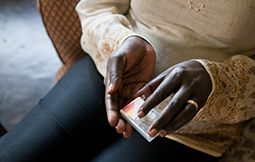 Experts meet on advancing access to HIV treatment
Experts meet on advancing access to HIV treatment

10 September 2013
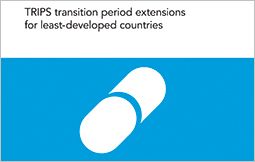 UNAIDS and UNDP back proposal to allow least-developed countries to maintain and scale up access to essential medicines
UNAIDS and UNDP back proposal to allow least-developed countries to maintain and scale up access to essential medicines

26 February 2013
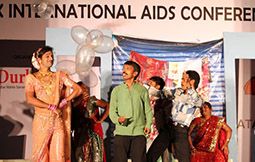 Sex workers demand respect for their fundamental rights in a parallel summit to the AIDS 2012
Sex workers demand respect for their fundamental rights in a parallel summit to the AIDS 2012

25 July 2012
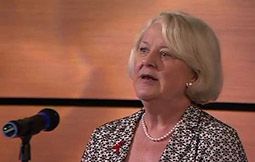 TB and HIV integration discussed at AIDS 2012
TB and HIV integration discussed at AIDS 2012

22 July 2012
Related
HoA
04 August 2014
undp web
04 August 2014
 Experts meet on advancing access to HIV treatment
Experts meet on advancing access to HIV treatment

10 September 2013
 UNAIDS and UNDP back proposal to allow least-developed countries to maintain and scale up access to essential medicines
UNAIDS and UNDP back proposal to allow least-developed countries to maintain and scale up access to essential medicines

26 February 2013
 Sex workers demand respect for their fundamental rights in a parallel summit to the AIDS 2012
Sex workers demand respect for their fundamental rights in a parallel summit to the AIDS 2012

25 July 2012
 TB and HIV integration discussed at AIDS 2012
TB and HIV integration discussed at AIDS 2012

22 July 2012
Related
HoA
04 August 2014
undp web
04 August 2014
 Experts meet on advancing access to HIV treatment
Experts meet on advancing access to HIV treatment

10 September 2013
 UNAIDS and UNDP back proposal to allow least-developed countries to maintain and scale up access to essential medicines
UNAIDS and UNDP back proposal to allow least-developed countries to maintain and scale up access to essential medicines

26 February 2013
 Sex workers demand respect for their fundamental rights in a parallel summit to the AIDS 2012
Sex workers demand respect for their fundamental rights in a parallel summit to the AIDS 2012

25 July 2012
 TB and HIV integration discussed at AIDS 2012
TB and HIV integration discussed at AIDS 2012

22 July 2012

